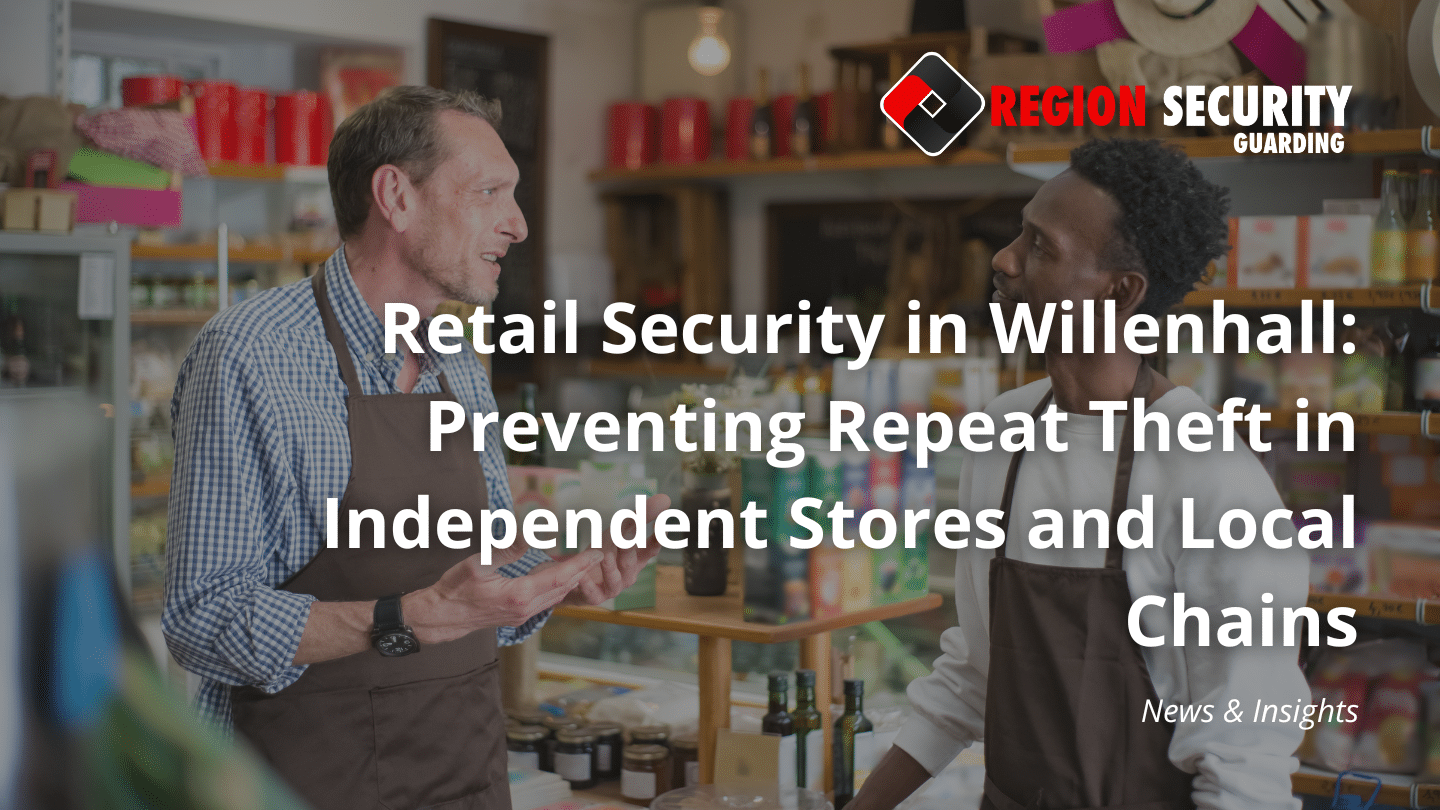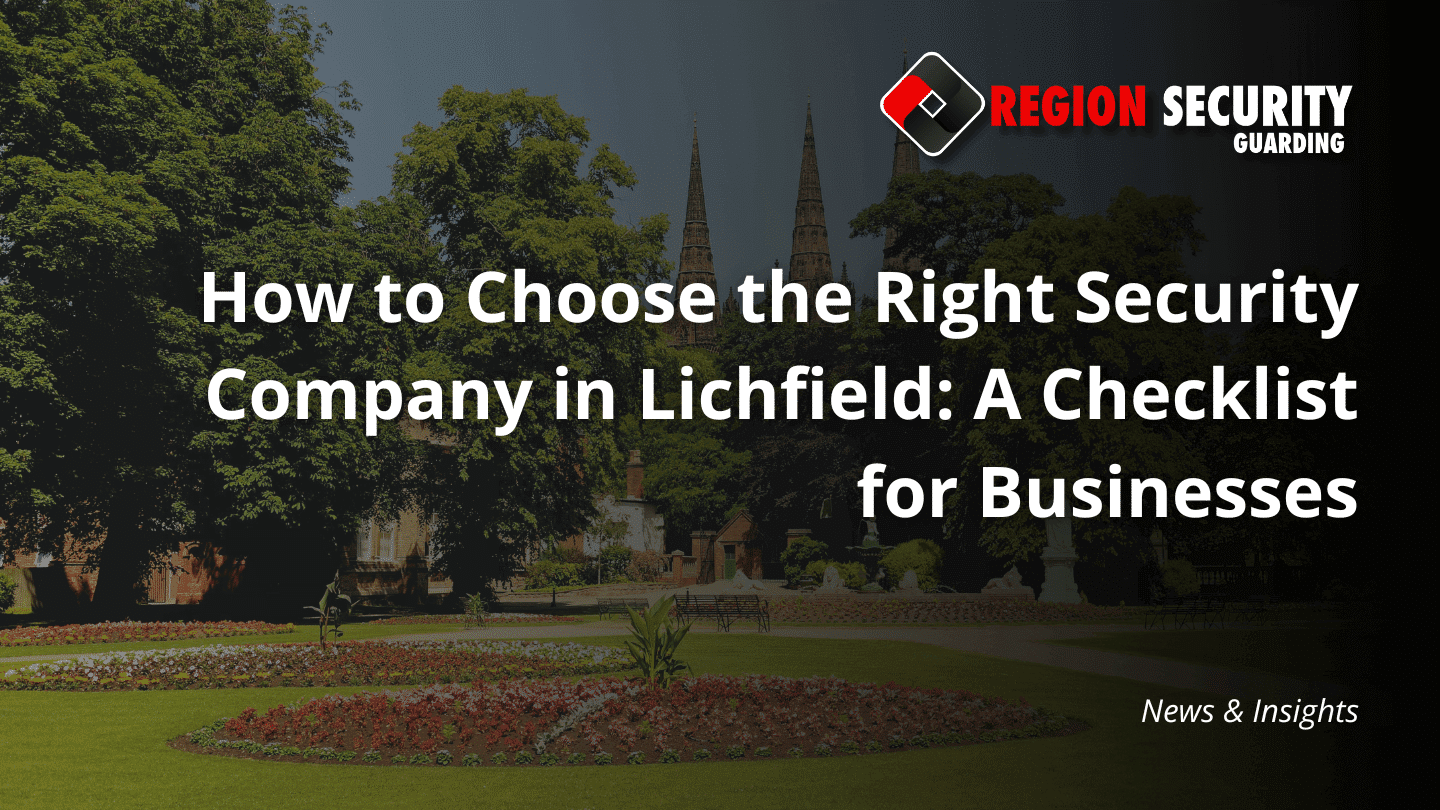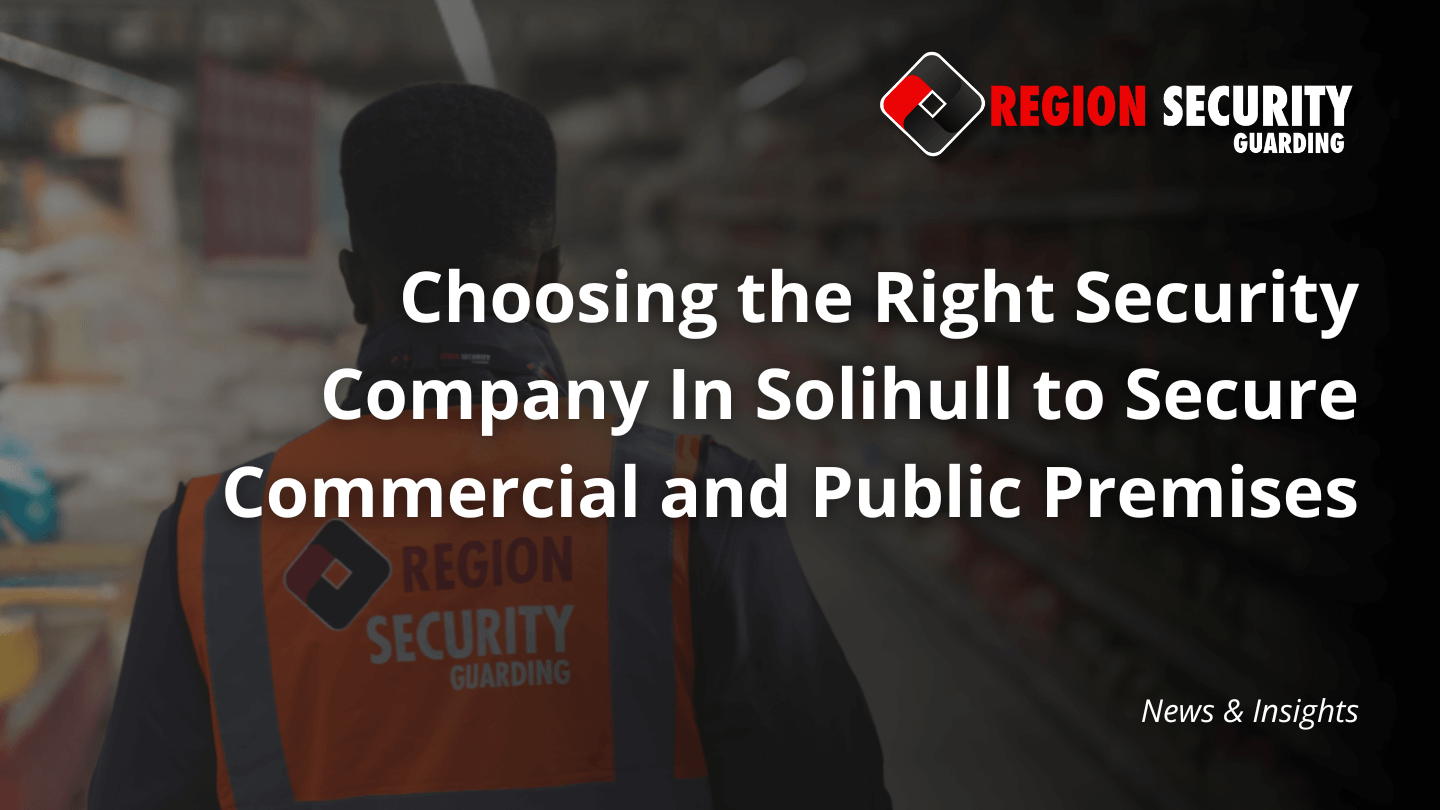When you think of close protection security, you might picture sunglasses, earpieces, and suits. However, there’s much more to these officers than meets the eye. These highly trained professionals are the backbone of personal security, protecting everyone from celebrities to CEOs. But what is a close protection officer and what’s involved in the role?
In this article, we’ll dive into the world of close protection, exploring the skills, training, and mindset needed to excel in this exciting and demanding career.
Table of Contents

What Is Close Protection Security?
Close protection security is a specialised sector within the wider security industry. Unlike traditional security guards who typically protect properties or premises, close protection officers work directly with individuals to ensure their safety in any situation.
Often associated with bodyguards and close protection officers, these professionals provide a tailored layer of security to high-profile individuals, business executives, celebrities, and even private citizens.
What Is A Close Protection Officer?
A close protection officer is a type of guard who works within the security industry to protect people. Close protection operatives are normally hired to protect high-profile people such as:
- Celebrities.
- Politicians.
- Wealthy Individuals.
- Government Officials.
- Members Of The Royal Family.
- Barristers.
How Much Does A Officer Earn?
According to Glassdoor, the average close protection officer’s salary is typically around £31, 500 per year. However, how much a close protection officer makes will depend on the position that they’re applying for and the location where they’re working.
What Is The Role Of A Close Protection Officer?
Like security guards, close protection officers will have a similar main duty of protection. However, unlike security guards who protect everything from buildings to valuables, a close protection operative’s main role will be to focus on the safety of their client.
This kind of security officer plays a specialised role. They’ll focus solely on the safety and well-being of individuals rather than general assets or properties.
The primary responsibility of a CPO is to ensure their client remains safe from any potential threats, whether that’s physical harm, harassment, or unwanted attention. This role often involves:
- Risk Assessment: Identifying and reducing threats through careful planning and analysis.
- Personal Escorting: Accompanying the client wherever they g. This could be be public events, business trips, or leisure activities.
- Travel Security: Ensuring safe routes of travel, both domestically and internationally.
- Emergency Response: Acting rapidly and effectively to any unexpected dangers or incidents.
How To Become A Close Protection Officer?
Becoming a professional in close protection security in the UK involves meeting several key requirements. While no formal educational qualifications are needed, there are specific certifications, checks, and skills that you must achieve to succeed in this demanding role. Below, we outline the essential steps to kickstart your career in this specialised field:
An SIA Close Protection Licence
To work legally as a close protection officer in the UK, you must hold a licence approved by the Security Industry Authority (SIA). Specifically, you’ll need an SIA Close Protection Licence, which costs approximately £184 and remains valid for 3 years. You can apply for this licence directly on the SIA website.
Passing The Necessary Training Courses
Earning the SIA licence requires you to pass accredited training courses that equip you with the skills to handle the demands of close protection. The mandatory qualification is the Level 3 Certificate for Close Protection Operatives Working in the Private Security Industry.
In addition to this, you must successfully complete a first aid training course. Having a valid first aid qualification is critical, as close protection officers are often required to respond quickly in high-pressure situations where medical attention may be necessary.
Being At Least 18 Years Old
Like all roles in the security industry, you must be at least 18 years old to work as a close protection officer. This is a standard requirement across the UK.
Undergo Background Checks
Before gaining your SIA licence, you’ll need to pass a series of background checks to ensure your suitability for the role. These checks, conducted by the SIA, may include:
- A criminal record check
- A basic background check
- A mental health check
These processes ensure that you are reliable, trustworthy, and prepared to work in sensitive and sometimes high-risk environments.
Having The Right To Work In The UK
You must have the legal right to work in the area where you plan to operate. For UK citizens, this requirement is automatically met. If you’re a non-UK citizen, you’ll need to provide evidence of your right to work before applying for your SIA licence.
Have A Valid Driving Licence
Having a full driving licence is an important requirement for close protection officers. Since CPOs often escort clients during travel, being able to drive safely and efficiently is a critical part of the role. A driving licence ensures you can operate vehicles as part of security operations, whether locally or internationally.
How Do You Get Licensed?
To work as a close protection officer in the UK, getting the right licence is key. Not only will you need to complete specific security training, but you must also hold a first aid qualification.
In 2022, the UK government and SIA introduced a new requirement, making first aid certification essential for all close protection professionals. This change came in response to updated legislation and the growing recognition of the value medical readiness has in ensuring public safety.
Can Females Do Close Protection Work?
Although the security industry is more male-dominated, many women successfully work as close protection officers and bodyguards. Some of the most renowned professionals in the field are women. Discover more about these trailblazing female close protection experts in our short video:
What Makes A Good Close Protection Officer?
A great close protection officer needs a diverse set of skills to perform at the highest level. Key qualities include:
- Being able to work well under pressure.
- Strong leadership skills.
- Clear and effective communication.
- Attention to detail.
- Excellent physical fitness.
- A solid knowledge of public security and safety.
- Sharp concentration and focus.
- Strong patience skills.
What Do These Types Of Officers Do?
When we ask the question what is close protection security, the core concept is protecting clients from potential threats theft. But, what specific duties do these officers have? What’s involved in the role? Some of these responsibilities are:
- Identifying any suspicious activity, people, and behaviour.
- Driving their clients to and from events or venues.
- Accompanying clients on their business and social trips.
- Reviewing the safety of a venue before their client arrives.
- Preventing any potential threats or disruption.
What Powers Do Close Protection Officers Have?
They have powers similar to those of security guards. They can detain individuals if they believe a crime is being committed, but they’re not law enforcement officers.
Unlike the police, they cannot make formal arrests, but are allowed to perform a citizen’s arrest if necessary. Their authority is focused on ensuring the safety of their clients and responding to immediate threats.
Are These Security Officers Armed?
While some protection officers may carry self-defense weapons, most do not. Whether or not an officer is armed depends largely on the laws of the country where they’re working. For instance, in the UK, there are strict laws against carrying weapons and firearms. This means that most close protection officers will be unarmed. Instead, they rely on training, strategic planning, and non-lethal methods to ensure the safety of their clients.
In contrast, in some countries with more relaxed weapon laws, protection officers may be authorised to carry firearms or other defensive tools as part of their role. Ultimately, it’s determined by both legal restrictions and the specific needs of the client being protected.

Is Close Protection Security A Good Career?
This position can be an exciting and rewarding career within the security industry, especially for those who enjoy a dynamic and active role. Protection officers often work with high-profile individuals, such as celebrities or executives, and their duties can include attending social events, ensuring safety during travel, and managing various risks in real-time. This means no two days are ever the same, making the job constantly interesting and varied.
Another benefit of being a close protection officer is the higher salary compared to other roles in security.
So, if you’re seeking a challenging, fast-paced job that offers both excitement and better financial rewards, a career in close protection security could be the perfect fit for you.
What Is The Difference Between A Bodyguard And A Close Protection Officer?
At first glance, bodyguards and close protection officers may seem identical, as they both provide physical protection for high-profile individuals. However, there are key differences between the two, particularly in their training, skills, and approach to security. Here’s a breakdown to compare the two roles:
| Aspect | Bodyguard | Close Protection Officer |
|---|---|---|
| Training | Basic security training, often focused on physical presence and deterrence. | Advanced, SIA-accredited training with a focus on risk assessment, strategy, and situational awareness. |
| Role Scope | Primarily focuses on physical protection and deterring threats. | Includes threat analysis, security planning, client logistics, and managing emergency situations. |
| Skills | Physical strength, vigilance, and basic defense skills. | Advanced skills like surveillance, risk management, first aid, and conflict de-escalation. |
| Approach | More reactive—responding to immediate threats. | Proactive—identifying and neutralising risks before they escalate. |
| Perception | Often seen as a general security figure. | Recognised as a highly trained security professional. |
Summing Up: What Is A Close Protection Officer?
A close protection officer is a skilled security specialist responsible for protecting high-profile people such as politicians and business leaders. Their role focuses on anticipating threats, managing risks, and ensuring their clients’ safety through careful planning and quick decision-making. By combining advanced training with real-time vigilance, they provide a crucial layer of security for those who need it most.
Want to learn more about the world of security? Stay in the know by exploring our blog! Discover articles on topics like what’s a store detective and the difference between USA and UK security guards. Whether you’re starting your journey in security or just curious, there’s something for everyone. Check it out today!
Business Security You Can Rely On
Trusted by leading businesses nationwide for reliable, 24/7 protection.
or call 0330 912 2033

We have used Region security for quite a while now. Top notch service, great guards and helpful staff. We love our guards and the team for all of their help / work. No need to try the other companies at all."
Andy Yeomans - Jones Skips Ltd
Great company, professional services, friendly guards and helpful at times when required."
Rob Pell - Site Manager
A professional and reliable service. Always easy to contact and has never let us down with cover. No hesitation in recommending and competitively priced also. After using an unreliable costly company for several years it is a pleasure to do business with Region Security"
Jane Meier - Manager
Region Security were very helpful in providing security for our building. We had overnight security for around 4 months. The guards themselves were professional, easy to reach and adapted very well to our specific needs. Would definitely recommend Region for security needs.
Lambert Smith Hampton
Great service. Reliable and professional and our lovely security guard Hussein was so helpful, friendly but assertive with patients when needed. He quickly became a part of our team and we would love to keep him! Will definitely use this company again
East Trees Health Centre
Fantastic Service from start to finish with helpful, polite accommodating staff, we have used Region Security a few times now and always been happy with what they provide.
Leah Ramsden - Manager




